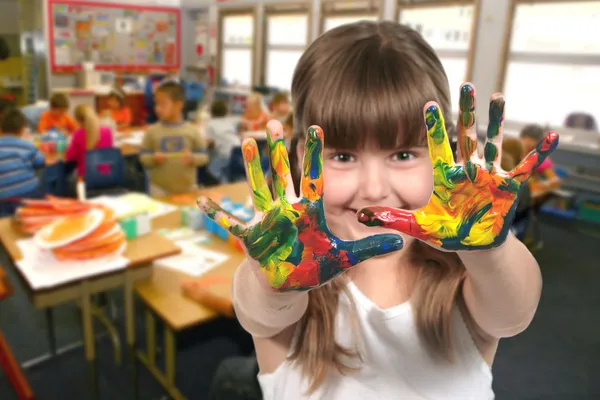Discover how to “Unlock your Child’s Full Potential” In an era characterized by unprecedented technological advancements and rapidly evolving global dynamics, the quest for nurturing and unleashing a child’s latent talents is paramount. Parents and guardians alike share the universal aspiration to provide their progeny with every opportunity to thrive in school and beyond. Today, we embark on a journey to uncover the Insights To Unlock Your Child’s Fullest Potential For School And Beyond.
Understanding the Multifaceted Nature of Potential
Before delving into the strategies and methodologies to harness your child’s potential, it is essential to understand the multifaceted nature of this concept. Potential is not a single, monolithic attribute, but rather a composite of various factors, including cognitive abilities, emotional intelligence, creativity, and social skills. Moreover, potential is not static; it is malleable and can be enhanced with the right nurturing and guidance.

Cognitive Potential
Cognitive potential is the foundation upon which academic success is built. It encompasses a range of intellectual abilities, such as critical thinking, problem-solving, and memory retention. Cultivating cognitive potential involves exposing your child to a stimulating learning environment. Engaging in activities that promote critical thinking, like puzzles and brain teasers, can significantly boost cognitive abilities.
Emotional Intelligence
Emotional intelligence, often referred to as EQ, is a crucial aspect of a child’s potential. It relates to their ability to recognize, understand, and manage emotions, both in themselves and others. EQ is particularly important in today’s interconnected world, where effective communication and interpersonal skills are highly prized. Encouraging your child to express their emotions and providing them with the tools to handle stress and conflicts is integral to developing emotional intelligence.
Creativity
Creativity is another facet of potential that should not be underestimated. It involves the ability to think outside the box, generate novel ideas, and approach problems from diverse angles. Encouraging creativity can be achieved through exposure to various forms of art, music, and literature. Moreover, giving your child the freedom to explore their interests and passions fosters creativity.
Social Skills
In the age of collaboration and teamwork, social skills are a fundamental component of potential. A child’s ability to work effectively with others, resolve conflicts, and communicate their thoughts and ideas is invaluable. Encouraging social interaction from an early age through playdates, group activities, and team sports can go a long way in enhancing your child’s social skills.
Building the Foundation: Early Childhood Development
The journey to unlocking your child’s full potential begins in the early stages of their life. During this period, the brain is exceptionally receptive to new experiences and learning. By providing a conducive environment, parents can lay the foundation for future academic and life success.
Early Learning Environments
Early childhood education plays a pivotal role in shaping a child’s cognitive potential. High-quality preschools and daycare centers offer structured and stimulating learning environments. These settings foster social interaction and provide children with the opportunity to develop essential skills and knowledge.
Reading and Language
One of the most potent tools for cognitive development is reading. The act of reading to your child from an early age not only exposes them to language but also nurtures a love for books and learning. Reading stimulates the imagination, enhances vocabulary, and cultivates a lifelong passion for knowledge.
Play-Based Learning
Play is the natural language of children. It serves as a platform for developing creativity and social skills. Through play, children learn to solve problems, cooperate with peers, and explore the world around them. Encourage your child to engage in imaginative and unstructured play, as it fosters creativity and emotional intelligence.
Encouraging Curiosity
Curiosity is the driving force behind learning and the exploration of one’s potential. Encourage your child’s innate sense of curiosity by allowing them to ask questions and explore their interests. This inquisitiveness will lay the foundation for a lifelong passion for learning.
Nurturing Cognitive Potential
As your child progresses through their educational journey, it’s crucial to continue nurturing their cognitive potential. This can be achieved through a combination of home-based activities and school support.
Enrichment Activities
Enrichment activities, such as science experiments, art projects, and educational games, are instrumental in expanding a child’s cognitive abilities. These activities challenge their thinking and problem-solving skills, thereby unlocking their full potential.
Homework Assistance
As your child advances in school, the demands of homework and assignments increase. Offering guidance and support without being overly prescriptive empowers your child to develop self-reliance and problem-solving skills.
Extracurricular Pursuits
Extracurricular activities provide a platform for exploring diverse interests. Encourage your child to participate in clubs, sports, and hobbies outside of school. These pursuits not only enhance cognitive potential but also contribute to personal growth.
Mentorship and Tutoring
If your child displays a particular aptitude or passion in a subject or field, consider seeking mentorship or tutoring. Expert guidance can help them unlock their full potential in areas of exceptional interest.
Fostering Emotional Intelligence
Emotional intelligence is a cornerstone of personal and professional success. To unlock your child’s fullest potential for school and beyond, it’s essential to nurture their emotional intelligence.
Open Communication
Create an environment where your child feels safe to express their emotions and thoughts. Engage in open and empathetic conversations, actively listening to their concerns and experiences.
Problem-Solving Skills
Teach your child how to analyze problems, identify potential solutions, and make informed decisions. This not only enhances their emotional intelligence but also equips them with valuable life skills.
Empathy and Compassion
Foster empathy by encouraging your child to consider the feelings and perspectives of others. Engage in discussions about empathy, kindness, and the importance of understanding and supporting those around them.
Conflict Resolution
Conflict is an inevitable part of life. Teach your child effective conflict resolution strategies, emphasizing compromise, active listening, and the importance of finding mutually agreeable solutions.
Cultivating Creativity
Creativity is the engine of innovation and problem-solving. Nurturing your child’s creativity is paramount for their future success.
Exploration of the Arts
Expose your child to a variety of artistic experiences, such as music, painting, and theater. Participation in the arts fosters creativity and encourages them to think beyond conventional boundaries.
Encouraging Originality
Celebrate your child’s unique ideas and creative projects. Encourage them to pursue their interests and explore their creative passions, no matter how unconventional they may seem.
Divergent Thinking
Challenge your child to explore multiple solutions to problems. Divergent thinking promotes creative problem-solving and helps them unlock their potential to innovate.
Developing Social Skills
In a world that values collaboration and teamwork, social skills are essential. Nurturing your child’s ability to interact effectively with others is key to unlocking their potential.
Team Sports and Group Activities
Participation in team sports and group activities fosters cooperation, communication, and teamwork. These experiences enable your child to develop social skills and enhance their potential for success in group settings.
Peer Interactions
Encourage your child to form friendships and interact with peers. These interactions offer valuable lessons in empathy, communication, and building positive relationships.
Leadership Opportunities
Provide your child with opportunities to take on leadership roles, whether at school, in clubs, or in community activities. Leadership experiences nurture social skills and enhance their potential for making a positive impact on others.
Encouraging Lifelong Learning
Unlocking your child’s full potential is not a destination but a continuous journey. To ensure they continue to thrive academically and in life, it’s crucial to instill a love for learning.
Modeling Curiosity
Children often emulate their parents’ behavior. Demonstrate your own curiosity and passion for learning. This serves as a powerful example and motivates them to do the same.
Embrace Learning Challenges
Encourage your child to embrace challenges and view failures as opportunities for growth. This resilient mindset empowers them to overcome obstacles and unlock their potential.
Set Goals and Foster Ambition
Help your child set achievable goals and work towards them. This fosters ambition and a sense of purpose, driving them to reach their full potential.
Support Personal Interests
Continue to support your child’s individual interests and passions. These pursuits not only contribute to their personal growth but also enhance their potential in their chosen areas of interest.
Conclusion
Unlocking your child’s full potential for school and beyond is a multifaceted endeavor. It encompasses cognitive development, emotional intelligence, creativity, and social skills. By creating a supportive and nurturing environment, parents and guardians can empower their children to excel academically and lead fulfilling lives.
The journey begins in early childhood, with a focus on learning environments, reading, and play-based activities. As children progress through their educational journey, enrichment activities, homework assistance, and extracurricular pursuits become essential in nurturing cognitive potential.
Fostering emotional intelligence involves open communication, problem-solving skills, empathy, and conflict resolution. Cultivating creativity is achieved through exploration of the arts, encouraging originality, and divergent thinking.
Developing social skills includes participation in team sports, peer interactions, and leadership opportunities. To ensure lifelong learning, parents should model curiosity, embrace challenges, set goals, and support personal interests.
In the end, unlocking your child’s full potential is a journey of continuous growth, discovery, and support. With the right guidance and a nurturing environment, your child can realize their fullest potential and thrive academically and in all aspects of life.
You may also like | Enhance Your Kidney Health: 7 Morning Drinks You Need






